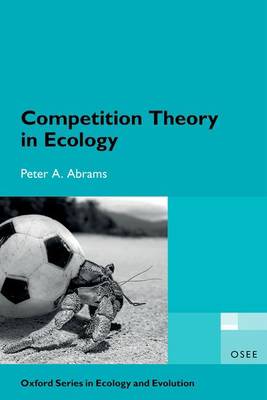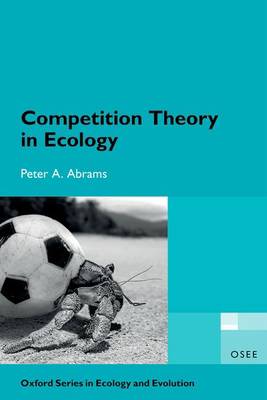
- Retrait gratuit dans votre magasin Club
- 7.000.000 titres dans notre catalogue
- Payer en toute sécurité
- Toujours un magasin près de chez vous
- Retrait gratuit dans votre magasin Club
- 7.000.000 titres dans notre catalogue
- Payer en toute sécurité
- Toujours un magasin près de chez vous
169,45 €
+ 338 points
Description
Competition between species arises when two or more species share at least some of the same limited resources. It is likely to affect all species, as well as many higher-level aspects of community and ecosystem dynamics. Interspecific competition shares many of the same features as density dependence (intraspecific competition) and evolution (competition between genotypes). In spite of this, a robust theoretical framework is not yet in place to develop a more coherent understanding of this important interaction. Despite its prominence in the ecological literature, the theory seems to have lost direction in recent decades, with many synthetic papers promoting outdated ideas, failing to use resource-based models, and having little utility in applied fields such as conservation and environmental management. Competition theory has done little to incorporate new findings regarding consumer-resource interactions in the context of larger food webs containing behaviourally or evolutionarily adapting components. Overly simple models and methods of analysis continue to be influential. Competition Theory in Ecology represents a timely opportunity to address these shortcomings and suggests a more useful approach to modelling that can provide a basis for future models that have greater predictive ability in both ecology and evolution. The book concludes with some broader observations on the lack of agreement on general principles to use in constructing mathematical models to help understand ecological systems. It argues that a more open discussion and debate of the underlying structure of ecological theory is now urgently required to move the field forward.
Spécifications
Parties prenantes
- Auteur(s) :
- Editeur:
Contenu
- Nombre de pages :
- 336
- Langue:
- Anglais
- Collection :
Caractéristiques
- EAN:
- 9780192895523
- Date de parution :
- 30-12-22
- Format:
- Livre relié
- Format numérique:
- Genaaid
- Dimensions :
- 165 mm x 226 mm
- Poids :
- 703 g







